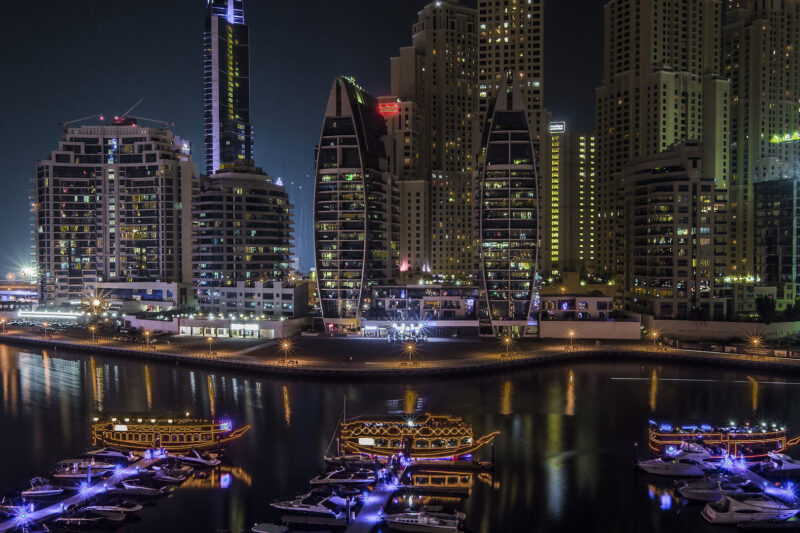About Jordan
Jordan is an appealing destination due to its strategic location as a gateway to the Middle East and its rich historical and cultural heritage, including sites like Petra and the Dead Sea. The country offers a relatively stable political environment and a welcoming atmosphere for expatriates. Additionally, Jordan has a growing economy, diverse job opportunities, and a strong educational system, making it an attractive choice for families and professionals seeking a better quality of life. The presence of various international communities further enhances its appeal.
Jordan Overview
The Hashemite Kingdom of Jordan, named after the Jordan River that flows along its western border, stands out as one of the most politically progressive countries in the region, committed to peace and stability. Gaining independence from the United Kingdom in 1946, Jordan has established itself as a key ally of the United States and maintains positive relations with its neighboring countries. It is a member of the League of Arab States and has a peace agreement with Israel, which has allowed it to play a mediating role in regional conflicts.
Jordan’s rich history is reflected in its numerous elaborately designed mosques and diverse architecture, characterized by traditional geometric patterns. The country is home to vibrant markets, such as the Gold Market and Spice Market, along with a variety of handicrafts. Traditional visual arts, including tapestry, embroidery, leatherwork, pottery, and ceramics, contribute to the nation’s cultural identity, while a modest film industry adds to its creative scene. In recent years, the government has also invested in promoting cultural tourism, emphasizing Jordan’s diverse heritage.
Located on the Northern Arabian Peninsula, Jordan is almost entirely landlocked, positioning it favorably for investors due to its proximity to Saudi Arabia to the south and Israel to the west, thus enhancing its business and investment potential. The capital city, Amman, serves as a major commercial and transportation hub, with the Port of Al-‘Aqabah located along the coast, and it is recognized as a key cultural center in the Arab world. Amman is known for its modern infrastructure and serves as the country’s economic and administrative center.
Although predominantly desert landscape (Syrian Desert and part of the Arabian Desert) occupies four-fifths of the country’s area, the climate varies from Mediterranean in the west to desert conditions in the east and south, influenced by the nearby Mediterranean Sea. This variation contributes to a range of agricultural products, with olive oil and citrus fruits being significant exports.
Community and Geopolitical Importance
The majority of Jordan’s population consists of Jordanians, with around 80% living in urban centers, particularly Amman, Al-Zarqāʾ, Irbid, and Al-Ruṣayfah. The average life expectancy is approximately 75 years, and the country experiences a relatively low crime rate. Palestinians form the second-largest demographic group, and Jordan is notable for granting citizenship to many Palestinian refugees. The country also offers refuge to Syrian and Iraqi refugees fleeing from the Syrian Civil War and the Iraq War, respectively. As of recent estimates, Jordan hosts over 1.3 million Syrian refugees, which showcases its humanitarian efforts.
Economy and Trade
Jordan has a relatively small but diversified economy with significant investment potential. Trade and finance contribute about one-third of the GDP, while the services sector, which includes retail, public administration, and defense, offers most employment opportunities. Major exports include clothing and chemical products, with key markets in Iraq, Saudi Arabia, and the USA, while main imports come from China, Saudi Arabia, the USA, and the European Union. In addition, the agricultural sector plays a crucial role, employing a significant portion of the workforce despite the challenging climate conditions.
Tourism and Historical Sites
Tourism plays a crucial role in the economy, attracting visitors globally to its historical and religious sites. The ancient biblical kingdoms of Edom, Gilead, and Moab draw thousands to Jordan. The ancient Roman city of Petra, located in southern Jordan, is a UNESCO World Heritage Site and one of the Seven Wonders of the World, known as the “Rose City” or “Red City” due to the color of its stone. In 2021, Jordan’s tourism sector began to recover from the pandemic, highlighting the nation’s efforts to adapt and promote safety in travel.
Arts, Culture, and Sports
Jordan’s art scene in cities like Amman, Irbid, and Jaresh features museums, theaters, and the annual Jerash Festival of Culture and Arts. Established in 1981 by Queen Noor, this festival is one of the largest cultural events in the region, showcasing visual and performance art from Jordanian, Arab, and international artists, including pop music, ballet, spoken word poetry, and theater. The ancient Roman citadel in Jaresh, with its original amphitheaters, hosts festivities each July. The festival has become a significant event for cultural exchange, drawing visitors and artists from across the globe.
The Jordan National Gallery of Fine Arts displays contemporary Arab art, including sculptures, paintings, and ceramics. Jordan is home to several UNESCO World Heritage Sites, such as the ancient ruins of Petra, Qaṣr ʿAmrah, and Umm al-Rasas, along with various archaeological museums throughout the country. The country also celebrates a vibrant tradition of storytelling and music, with folk performances being a common aspect of community gatherings.
Both locals and tourists can explore the Dana and Wadi Araba deserts through trekking and hiking the famous Prophet’s Trail. Popular activities include camel and horse riding, jeep tours, and hot air balloon rides. Water sports in the Red Sea, such as snorkeling, treasure diving, water skiing, paragliding, and windsurfing, are also popular. Jordan is also known for its rich culinary scene, with traditional dishes like mansaf (a lamb dish served with rice) and various mezze (appetizers) being staples in both local and international restaurants.
Jordan’s airports, notably Queen Alia International Airport near Al-Jīzah (south of Amman) and the smaller international airports in Amman and Al-ʿAqabah, facilitate convenient travel to and from the kingdom. The government has been enhancing infrastructure to support tourism and investment, ensuring that Jordan remains accessible and appealing to visitors.

